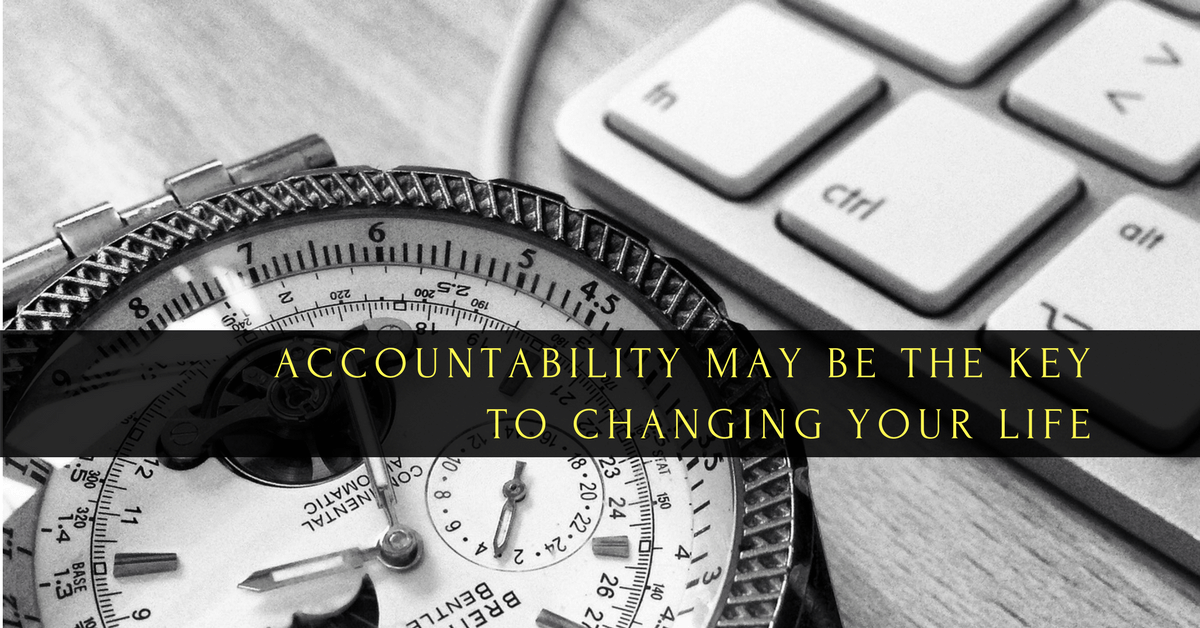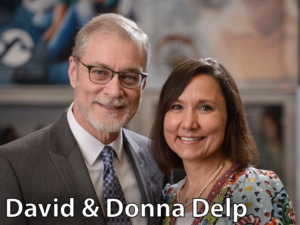
Podcast: Play in new window | Download
Why Accountability May be the Key to Changing Your Life
Accountability really is a key to changing your life. When we are ready to give an answer for our actions and when we assure that accountable structures exist in our lives we are far more likely to accomplish the life change we desire and to be the change in the world that we want to see. Leaders do not live life in a vacuum, a lot of people count on us, and we have a responsibility to be accountable for our actions, both for the things we do and the things we fail to do. Coaching, mentoring, teaching, and leadership are all dependent upon accountability.
In this episode of the Calibrate Life Podcast, David and Donna discuss the importance of accountability and how to incorporate it in our lives for life and leadership effectiveness. Continue reading for the time-stamped episode notes, links, and resources.
A desire to change, move something forward, or accomplish something must be accompanied by a plan for action. You cannot change, you cannot move an idea, vision or dream forward unless you take action.
Accountability as it Relates to Trust and Clarity [3:27]
We talk a lot about clarity vs. trust (Episode 010). Trust is more important than clarity, but you cannot take decisive actions until you have clarity, at least for as far as the implementation of the action. If you have no clarity, then you cannot devise a plan for forward movement, you cannot assemble an action plan. If you want to take a deep dive into this subject, listen to episode 010.
Recommended Book [5:49]

I do recommend this book often because I think it is the best team building book on the planet. Also available is a leader’s resource guide that goes with the book.
The material in this book on the subject of accountability emphasizes the importance of accountability to a team.
My favorite accountability quote in the book:
“Ambiguity is the enemy of accountability.”
To say we are “trusting” (which you will often hear from us) means that we move forward without all of the details or clarity we might like to have. We are trusting. Part of trusting is trusting that God is sovereign.
What do we do when we don’t know what to do? What do we do when things are not clear and we find ourselves just sitting around waiting and DOING nothing? Is that the plan? Is that what we are supposed to do?
Sometimes we are so focused on inactivity until we have a sure and supernatural word that we never move forward. Part of trust is trusting in God’s sovereignty to move in us and shape our desires according to his will. When we are doing our best to yield and be faithful to what we feel would please the heart of God, we have to believe in God in us to give us direction.
The short version of what I am saying is, Make sure your heart is right and do what you want to do. Sometimes it comes down to that.
[callout]Sometimes finding God’s direction is as simple as making sure your heart is right and doing what is in your heart to do. [/callout]
We will talk about an accountability framework in a few minutes. The reason accountability is important in our lives is that it connects us to the bigger picture. I am accountable to God, I am accountable to others, I am accountable to those to whom I am responsible, I am accountable to the values, mission, vision, and purpose that lives in me.
I am accountable, I will give an account, not only for the things I do, but for the things I fail to do.
Why is accountability important?
Accountability is important because without an accountability plan or framework, we are less likely to change the things that we really want to change and do the things we intend to do.
Accountability is answering to someone, it is giving an account, it is confirming adherence to our standards, it is placing ourselves in a position to have to explain inaction, failure, or course changes.
When we are accountable to someone other than ourselves, it disciplines us to give an account to someone else and it disciplines us to articulate why we failed to make the proclaimed change or take an action that was important enough to us to commit to.
There are two kinds of accountability, and both are important for all of us. [10:10]
[10:25] Personal accountability. Our personal accountability related to where we go, who we hang out with, whether or not we are living in a manner that is above reproach, or even whether or not we are being diligent stewards of our lives and/or resources.
[13:27] Action accountability. Our action accountability relates to the consistency of our intended forward movement, whether or not we are completing the actions we said we would accomplish, whether or not we are faithfully keeping our commitments to others, and whether or not we are staying true to the values, mission, and visions we have proclaimed, specifically to those that affect our proclaimed life purpose.
The Need for Accountability for our Goals. [15:15]
Forward movement comes through clearly defined goals. Unless we are accountable to someone for our goals, they have a tendency to just become wishes. An unaccountable goal that has no timeline is simply a wish — it isn’t something we actually plan to do… it is simply a wish we hope will happen.
We must take greater control over the things we feel are connected to our reason for being!
[16:22] A goal, to be effective must be a SMART goal. I’ve seen this so many places, and I’ve heard it stated a number of ways, so much so that I do not know its origination. It has become a part of the fabric of leadership development and coaching.
SMART goals are evaluated by these elements.
S — The goal is SPECIFIC. The goal should be detailed and clearly stated and understood. [17:08]
M — The goal must be MEASURABLE. How do you know when the goal is met? If you cannot measure it, then it is not a SMART goal. [17:17]
A — The goal must be ATTAINABLE. While we must stretch ourselves in goal-setting, yet a goal, to be an effective goal that actually moves us toward the accomplishment of a change or of a vision, must be one we can actually reach. [17:30]
R — The goal must be RELEVANT. Does it matter? Is it transformational? [18:32]
T — The goal must be TIME-BOUND. The goal must have a deadline, be time constrained, or to put it simply, you must be able to time line the execution of the goal on the calendar. [18:40]
A few of these points are connected to ACCOUNTABILITY, particularly the goal’s relevance and time-lining.
A vision without a strategic plan is a hope deferred, and a hope deferred makes the heart sick. [21:12]
[shareable]A vision without a strategic plan is a hope deferred.[/shareable]
A GOAL WITHOUT A TIME-LINE is nothing more than a wish. [22:10]
[shareable]A goal without a time-line is nothing more than a wish.[/shareable]
When you want to change something in your life, if you do not have an ACCOUNTABLE, systematic plan for its completion… You. Will. Not. Change.
The Role of Accountability in Changing our Lives [22:25]
Let’s talk about the role of accountability in changing our lives and accomplishing our plan (hopes, dreams, vision).
We need to have an action bias rather than a strategic bias. [22:35]
What I mean by this is some leaders (people) have a strategic bias. They love to plan, they love to dream, they love to take vision retreats, they love to cast vision… in short, they love to talk about the things they would like to do or see.
[23:27] There’s nothing wrong with a strategic bias, in fact… I have one… but, strategy has to move into action.
Leaders (people) with an action bias are doers. If they are on the extreme end of the spectrum of an action bias, they may be “ready-fire-aim” people. They may take action without considering consequences.
I would rather have an action bias than a strategic bias, though both strategy and action are important. [24:25]
[24:37] Action without strategy may make a mess, but strategy without action will not make anything.
[shareable]Action without strategy may make a mess, but strategy without action will not make anything.[/shareable]
So, when we need to change something, when we need to see a transformation in our lives or in the world, when something needs to be different than what it currently is, we DEFINE the ACTIONS necessary to bring about the change.
This is a podcast about accountability, so we are talking about the role of accountability in our changing, or in us BEING or moving the change or transformation the world needs.
An Accountability Framework [25:15]
We need an accountability framework. Where will you give an account? To whom will you give an account for both the things you’ve done and the things you haven’t done?
We talked about personal accountability and action accountability. We need both.
Each of the following are important accountability elements:
- A Coach [26:34]
- A Team (5 Dysfunctions of a Team) [27:54]
- A Partner or Friend [29:22]
- A System [30:52]
- Our Selves [32:07]
[33:36] I’ve read on a number of occasions that Thomas Edison would announce his inventions before he started in order to motivate himself to finish.
[34:05] Right now, one of the greatest motivators in my life has been the phrase you will hear at the end of this podcast… “Hey, we are committed to publishing a new episode every Thursday morning.” I am being accountable to (you) our audience.
If we ever fail to release an episode, if that ever happens, we will be accountable and we will offer an explanation in the next episode, or when the episode is released.
These mechanisms for making and keeping ourselves accountable will strengthen us in staying on track and fulfilling our defined actions.
Calibration Tools [34:19]
- What are the actions to which we are or should be accountable? List those that relate to you and your life right now. Don’t forget to address both personal and action accountability.
- What is/are your accountability framework? To whom are you accountable and in what areas of your life?
- How do you make yourself accountable personally? Does someone know where you are at all times? Are you electronically accountable?
- Who is it, in your life, that is close enough to you and has your permission to challenge you when you are not moving forward your defined actions, especially those that relate to your life purpose?
 Receive this Free 23 Page eBook that will help you make better decisions and teach those you love and lead to make better decisions. In this eBook you will find…
Receive this Free 23 Page eBook that will help you make better decisions and teach those you love and lead to make better decisions. In this eBook you will find…
… The complet
e information contained in episodes 017, 018, and 019
… decision-ma
king pointers and resources that go beyond the podcast episodes
… small group, coaching, and discussion questions and action plans related to making good decisions.
If you are a subscriber to the Calibrate360 Weekly Resource Update, look for the link to this eBook in the next two newsletters. If you would like to subscribe we will send you this PDF eBook.
Subscribers to the Calibrate360 Weekly Resource Update will receive a link (in the Resource Update) for a valuable 23 page eBook in PDF format that contain not only the information included in this podcast, but includes information, pointers and valuable information in printed form


